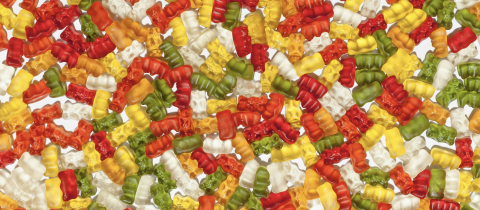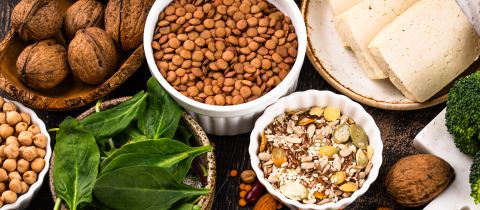Coffee first appeared in Canadian cups about two hundred years ago, some three hundred years after people in Africa and the Middle East were regularly consuming the beverage. The most popular legend about the origin of coffee consumption takes us back to Ethiopia in the ninth century. Kaldi, a young shepherd noted that his goats became particularly frisky after nibbling on the red berries of a certain bush. Intrigued, he tried the berries himself but found the taste very bitter. But there was something else. He felt full of energy and had trouble sleeping!
Thinking that the berries had some sort of divine qualities, he took some to a monastery where the monks confirmed the effect. They tried boiling the beans to eliminate the bitter taste, but were unsuccessful and concluded that the beans were more likely the devil’s work than a gift from God. So, they threw the beans into the fire!
Then came a surprise as a delightful aroma began to emanate from the flames. That spawned the idea of roasting and boiling the berries before tasting the brew. Now not only was the taste alluring, but drinking the extract of the berries allowed the monks to stay alert and pray all night. Word soon spread and by the fifteenth century the pleasures and effects of drinking a beverage brewed from roasted coffee beans were no longer limited to monks.
The component responsible for the energizing effects of coffee is of course caffeine, but the flavour is a more complicated story. Thanks to modern analytical chemistry, we know that roasted coffee beans can contain more than one thousand compounds! Some of these are present in the freshly picked beans, but the ones that give rise to the flavour and aroma of coffee are formed during the roasting process thanks to the “Maillard reaction,” named after Louis Camille Maillard who first described it in 1912. The Maillard reaction is actually a very complex sequence of reactions that begins with amino acids from the breakdown of proteins reacting with simple sugars to form an array of tasty and fragrant compounds. The taste and aroma of freshly baked bread, a seared steak, or fried potatoes are all due to the Maillard reaction.
Today, coffee beans are roasted in large commercial facilities and are shipped around the world. During the roasting process, some of the volatile components that contribute to aroma and flavour are lost and would continue to be lost during shipping unless preventative measures are taken. This involves packaging the roasted beans in bags composed of multi-layered plastics that seal in the volatile components. These bags unfortunately are not recyclable.
No matter what, roasted beans lose flavour with time. Now “Ansa,” an Israeli start-up company, claims to have developed a countertop home coffee bean roaster that will deliver excellent, fresh flavour and be environmentally friendly to boot. Green coffee beans do not require special packaging and can be shipped in recyclable bags. Furthermore, shipping to a roasting facility and then shipping to customers is replaced by shipping fresh, raw beans “from farm to cup.” There is no storage of roasted beans, which in commercial enterprises can be months, resulting in loss of flavour. Apparently, the Ansa roaster uses technology, which is not described, that, unlike commercial roasters, roasts the beans perfectly without “emitting unpleasant odour, noise, smoke or heat.” Seems like an item for people looking for that perfect cup of coffee.
Now what about the health effects of that perfect cup? Or any cup? On the upside, recent studies have indicated an increase in alertness and thinking skills, as well as possible protection against Parkinson’s disease, type 2 diabetes, liver disease and heart attacks. On the downside, caffeine can make some people jittery, interfere with sleep, and cause a temporary increase in blood pressure, although people who drink coffee appear to have lower average blood pressure over time. The benefits are likely due to the presence of a variety of polyphenols in coffee, compounds that have antioxidant properties. Antioxidants interfere with natural body processes that produce free radicals, those rogue species that steal electrons from molecules such as proteins or nucleic acids, causing their destruction. In theory, antioxidants offer protection against cancer but there is no evidence that coffee has this effect. Curiously, coffee also contains a number of carcinogens such as acetaldehyde, benzene, benzofuran, benzopyrene, caffeic acid, catechol, formaldehyde, furan, furfural and styrene, but numerous studies have shown that coffee does not cause cancer. Likely, its antioxidants take care of the nefarious effects of the carcinogens. But studies have also shown that coffee does not afford protection from cancer and certainly is not a treatment for the disease. Nevertheless, some alternative practitioners go as far as recommending coffee enemas for cancer patients. There is zero evidence for this.
What’s our takeaway? If jitteriness is not an issue, then there is no reason to be concerned about indulging in up to four cups of unsweetened coffee a day. But keep in mind that the only orifice into which the beverage should be introduced is the mouth.







